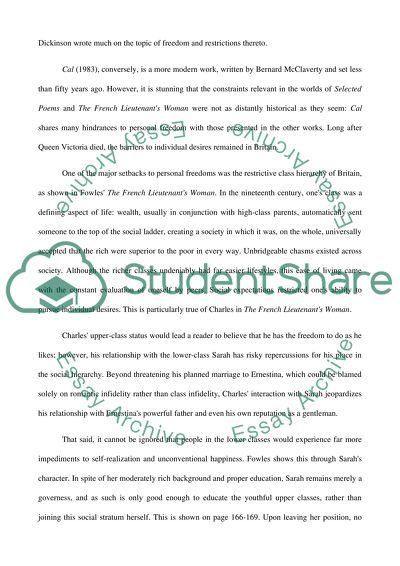Cite this document
(“The struggle for freedom in the French Lieutenant's Woman, Cal, and Essay”, n.d.)
Retrieved from https://studentshare.org/literature/1417713-the-struggle-for-freedom-in-the-french-lieutenants-woman-cal-and-selected-poems
Retrieved from https://studentshare.org/literature/1417713-the-struggle-for-freedom-in-the-french-lieutenants-woman-cal-and-selected-poems
(The Struggle for Freedom in the French Lieutenant'S Woman, Cal, and Essay)
https://studentshare.org/literature/1417713-the-struggle-for-freedom-in-the-french-lieutenants-woman-cal-and-selected-poems.
https://studentshare.org/literature/1417713-the-struggle-for-freedom-in-the-french-lieutenants-woman-cal-and-selected-poems.
“The Struggle for Freedom in the French Lieutenant'S Woman, Cal, and Essay”, n.d. https://studentshare.org/literature/1417713-the-struggle-for-freedom-in-the-french-lieutenants-woman-cal-and-selected-poems.


